Shopping The Airports For A Luxury Watch: Customs, Duties, And Discounts Explained
Some people understand the benefits, limitations, and mechanics of duty-free shopping for a luxury watch at an airport: they know a deal when they see one.
For these savvy individuals, shopping at the airport can and does make economic sense – sometimes. Whether you agree or disagree, airport shops seem to leave no one cold: some think their prices are artificially high due to the captive audience they attract. Others see their prices as a function of vacation travelers’ propensity to spend without the usual budgetary concern.
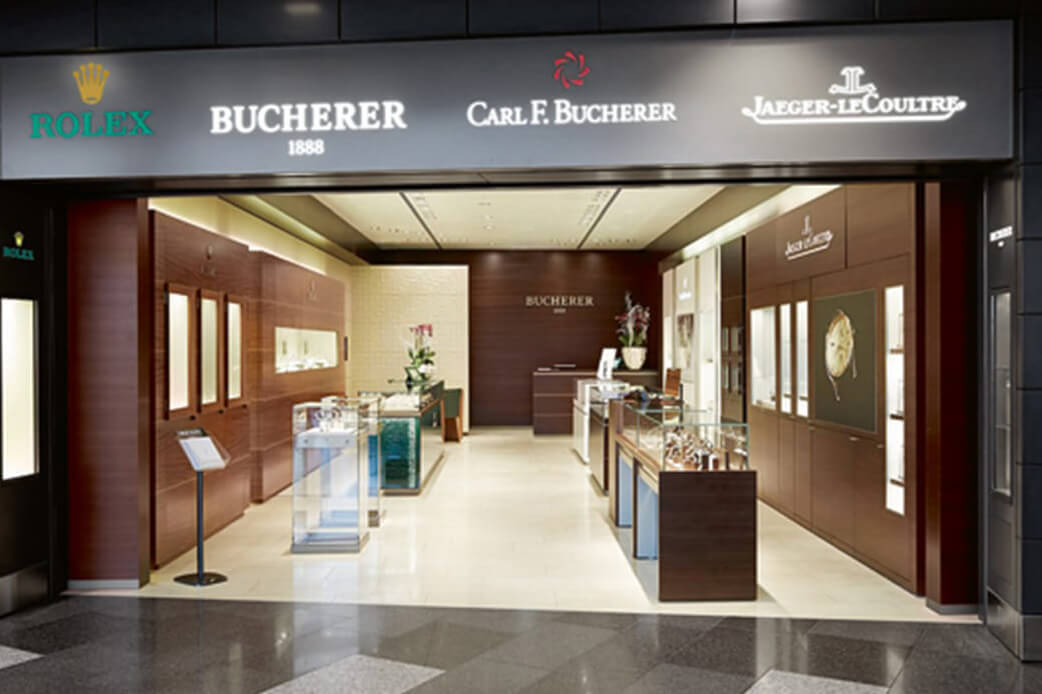
Bucherer boutique at Zurich airport
The fact is that many airports now approach the gold standard of the finest upscale shopping venues around. Apart from the usual inflatable neck pillows, liquor, cosmetics, and perfume, many airports offer luxury goods. Most of the major watch brands are represented through authorized dealers, airport-specialist shops, or in some cases even in brand-owned boutiques. And these frequently offer collections that rival or exceed the largest off-property watch shops.
Who buys a luxury timepiece at the airport?
So who buys a luxury timepiece at the airport? I discovered the answer is . . . everyone. People from all walks of life buy watches at airport authorized dealers and boutiques.
Their purchases range everywhere from entry level to the upper strata and everything in between. The consensus – when buying new – is that the airport is just another venue.
New, top-end brands are a commodity where price and availability are the only variables. After all, the piece is guaranteed authentic from the authorized dealer or boutique. Since it’s new there are none of the factors that affect the value of a pre-owned piece such as condition, service history, and provenance of the previous owner.
Some buyers cite the warranty as a reason to avoid purchasing from an airport venue. Nonsense. If it’s an authorized dealer or a brand-owned boutique, an international warranty is offered. It’s the same warranty one would get buying from an off-property shop.
In fact, I found that many of the largest airport watch venues also have sister shops off property. If the airport shop were to go under – as some do – the warranty is with the manufacturer, not the defunct shop.
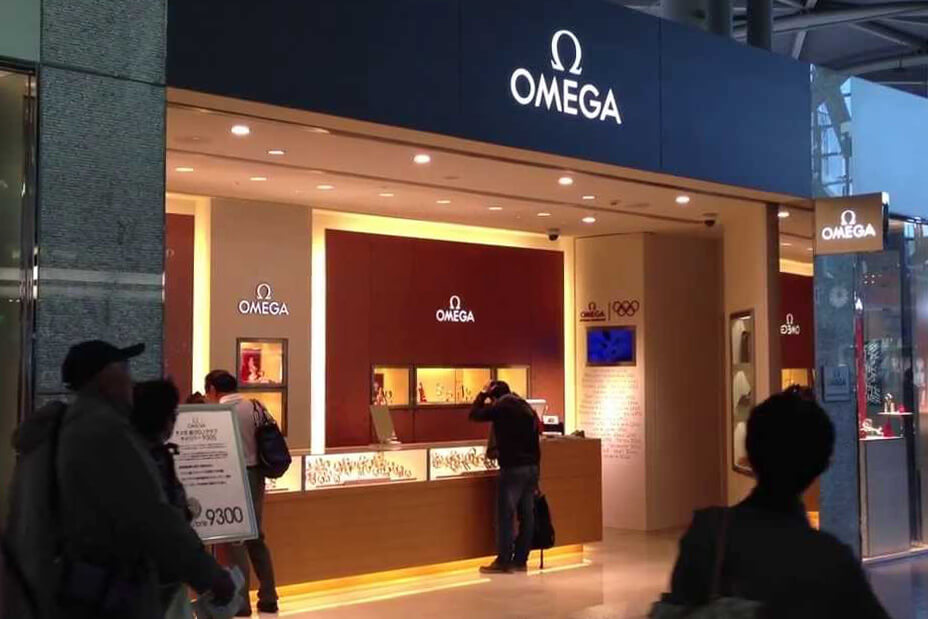
There are two categories of airport watch buyer
There are two categories of airport watch buyer, one of which has been looking for a specific piece for some time and knows exactly what he or she wants. These buyers also know the retail price and any discounts to be had; chances are during their travels they have stopped by a number of watch shops and possibly they couldn’t find what they wanted at their desired price. They usually have called ahead to the airport shop to discuss the watch they are looking for.
Such buyers have established a relationship with the airport shop personnel and have confirmed availability. Perhaps they have a stopover between flights that permits a thorough discussion and negotiation. I have been told that even at authorized dealers and brand-owned boutiques customers want to check serial numbers and inspect the pieces. Understandable.
The purchase could be in a foreign country and the shop is a new acquaintance to the buyer. Still, in my opinion the risk of getting a fake under these circumstances is slim to none, and slim just left town.
Some trackers of airport sales see revenue rising because people slip the psychological shackles of routine. Their holiday states of mind gives them permission to spend more freely while in transit. Additionally, like the airport watch buyer who has been looking for some time the impulse buyer isn’t as worried about getting a fake as he or she might be at an off-property shop.
Then there’s the duty-free factor. The impulse buyer may or may not understand duty free. No matter: it sounds like a way to get a discount that may not be available off property (though, there are plenty of duty-free shops off airport property).
“Duty free” helps buyers justify a nonessential purchase. How can you pass up a tax-free acquisition (more on that myth below)?
These buyers may have had a watch purchase in mind from the start of the trip but failed to find the piece. The airport authorized dealer just so happens to have that particular watch in its extensive collection. And it’s duty free! Damn the torpedoes: full speed ahead. Sold!
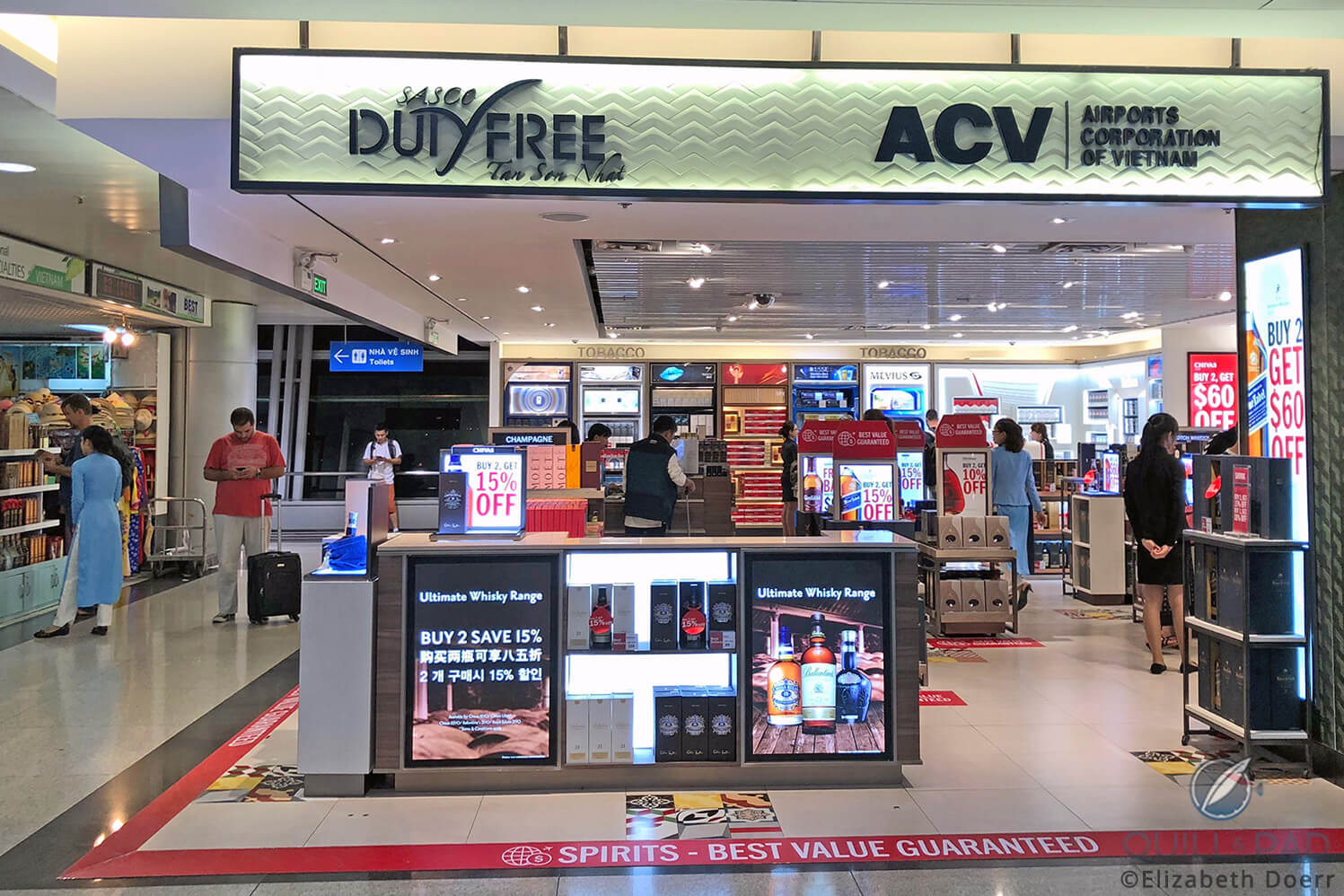
Advantage and disadvantages
Getting to see and feel the real thing in person is always better than the photo accompanying a duty-free internet purchase. This is a big advantage when considering an expensive watch.
Inventory at airport shops turns quickly, often giving way to larger collections than you might otherwise see in your hometown. A very real advantage.
Airports cater to affluent travelers: is this the kind of environment likely to discount name brands? Probably not. Indeed, the airport price may actually be higher than off property. That’s because some airport retailers raise their prices commensurate with what will be saved on the duty free and VAT discount. The shop will claim that it’s a wash net of the tax rebates.
Learn from my mistake when I purchased a very nice watch for my wife (who was thrilled). The shop provided all the VAT reimbursement paperwork for me to file once I returned home. The price was grossed up so that after my VAT refund the net price equaled what the retail price should have been: no discount to speak of and no negotiation, though I politely tried.
At U.S. customs the officer examined the watch and reviewed the sales slip. Then attempted to add an extra duty for a complication on the watch. I argued that is was merely a decoration and not a timekeeping complication. Back and forth we went. The line behind us grew and became louder.
Finally, the supervisor came over and settled the matter. “No extra duty,” he said. “Welcome home. Next!”
That was what I thought I wanted to hear. We immediately left customs before the officer could change his mind. No receipt or paperwork of any kind was forthcoming. However, when I got home and went to file for the VAT refund, the form asked for the customs number proving that I had gone through customs rather than smuggled the watch into the U.S.
Without that customs number, my VAT refund claim was denied. This error cost me $1,500 – added to an already inflated purchase price. Lesson learned.
Also, as an aside if you’re going to purchase a fine timepiece at an airport authorized dealer or boutique, purchase it on your way out of the country – preferably at your last stop before heading home – to avoid VAT.
Price advantages of airport shopping?
I write this article knowing full well that whatever I say about discounts at airport watch shops will be criticized: so many have had different experiences at airports the world over. And they think their experiences are the norm – especially those who tried but failed to get discounts on their purchases.
What I’ve found is that every shop is different; every location has varying trade customs; and time is a factor. Perhaps it’s the end of the revenue reporting period and the shop needs to move stock. Or it could be the beginning of the quarter and there are three whole months to make numbers so the shop will be less generous in giving discounts.
Maybe the coveted piece is not as much in demand by the general population, so there’s more willingness to negotiate. This releases working capital otherwise sucked up by slow-moving inventory.
Your experience will undoubtedly differ, but here’s what my research tells me. When working with an airport authorized dealer or boutique, generally target a discount of 30-35 percent.
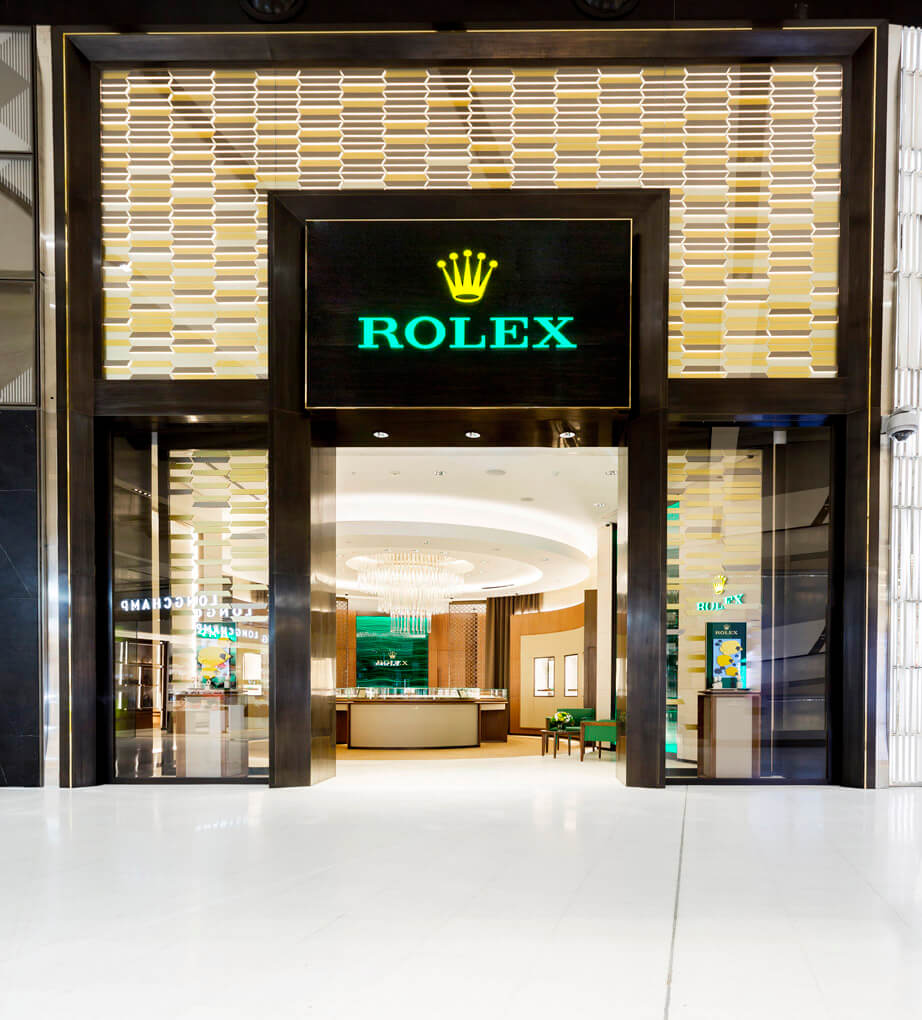
Unless it’s a Rolex. Then be happy with a 20 percent discount or less. Probably less.
Understand that the shop may factor the local tax you’re saving from duty free as part of your computed discount. So if the offered discount is 30 percent in a locality that has a 10 percent tax, your net discount from what you’d automatically get because the shop is duty fee is just 20 percent. In which case you now have the opportunity to educate the shopkeeper in his or her error.
Dubai airport seems to be a hot point with people set on negotiating the best price. I’ve read the testimony of people who successfully bargained in the Dubai airport watch shops and came away very happy with their prices. Others swear that there is no bargaining in Dubai airport watch shops under any circumstances. End of story.
The Doha Qatar Hamad International Airport is said to have an excellent Rolex selection at the official dealership. I’ve heard that if you fail to negotiate the purchase price, you’re needlessly leaving money on the table.
My feeling is that this probably depends on your salesperson, the actual watch in question, and any number of other factors. Still, it doesn’t hurt to politely ask for a discount. Leave yourself a face-saving exit if your request is denied.
Also, if you’ve set an absolute maximum price, be prepared to walk away if the shop refuses to budge. I’ve tried this tactic when bargaining for items other than watches and found that sometimes things change before I reach the door. Or not.
This brings up the issue of local custom. Both Dubai and Doha are in a part of the world where bargaining is a way of life, and airport watch shops may or may not adhere to this custom. It depends on factors probably not apparent to the casual traveler. There are those who say that both these airport shops cater to the uber wealthy. Negotiating for a few dollars off on a watch is seen as trivial in the general scheme of things, so don’t embarrass yourself even trying.
My advice is that if you really want that discount, politely negotiate for it. Respect for the counterparty goes a long way in the Middle East as elsewhere.

The real meaning of “duty free”
“Duty free” simply means the item is not subject to local taxes levied in the place of purchase. It does not mean there’s no customs duty payable on entry into your home country.
Some people have told me they have many times skirted paying the customs duty in their home countries by not declaring the piece purchased abroad – essentially becoming a smuggler.
Don’t take the risk. Customs inspectors (especially in the United Kingdom and United States) have become very adept at spotting would-be smugglers. Their most basic catch is to ask you to remove what they suspect is a newly purchased and undeclared watch.
You may still be unfamiliar with the bracelet hinge and lock, and as you fumble with the new catch you’re almost begging the inspector to slap on the cuffs and perp-walk you away.
Another method of apprehension is running your credit card number right there at the customs podium. Up pops that watch purchase that doesn’t seem to appear on your customs declaration form. Gotcha!
Even more embarrassing if it’s the same watch in plain sight on your wrist that you just claimed was purchased some time before this trip.
If they’re suspicious and decide to rummage through your baggage they’ll likely find the watch receipt itself or at least the shipping receipt for that empty watch box you so cleverly thought you’d ship home so customs wouldn’t find it. In any of these circumstances you’ve lied to a government official on an official customs declaration form that states perjury is a crime.
And you’ve provided written evidence of your crime(s). Now how smart does that sound?
Customs duty rates
These vary based on the country visited. Returning U.S. citizens each have a limit of $800 of tax freedom. The first $1,000 over that limit is taxed at three percent. Amounts over $1,000 pay a duty rate of 6.5 percent, which could still potentially work out to less than if you were making the purchase non-duty free.
For residents of the UK, it’s a little different. Here are the steps to compute your customs charges when importing a wristwatch.
- Convert the watch’s cost appearing on the sales slip to British pounds, being sure to use that day’s exchange rate. Keep your work papers so you can show the customs agent how you computed what the correct duty should be.
- Compute the basic import duty: this requires going to several websites (search “compute UK import duty” to get started) to find the proper classification code of your watch, then the basic import duty rate. Multiply the basic import duty rate by the watch’s cost in GBP (step 1) and you now have the import duty. Save that number.
- Compute the import VAT if applicable. UK import VAT is currently 20 percent. Simply multiply the value of the watch in GBP by 20 percent to find the VAT you might have to pay if applicable.
- Add the basic import duty (step 2) to the VAT (step 3) and you now have the total import duty payable. Some consider this just a starting point to haggle with the customs inspector. Sometimes it even works.
Playing the currency exchange rate
Unless you’re experienced in foreign exchange arbitrage, don’t figure this into your airport purchase decision. Sometimes the currency conversion can work in your favor, sometimes not. Exchange rate swings seldom occur as quickly as you making your decision to purchase a watch while on vacation at a particular airport.
However, the exchange rate could influence the country in which you decide to pull the trigger. Still, everything would have to be equal between the two competing venues: the price, the VAT (if any), the collection on offer, and availability of the piece. That’s probably not going to happen.
The best airports for watch buying
No matter which I choose, there will certainly be readers who say I missed the best and most obvious. Sorry, I’m doing the best I can here. Please feel free to provide your opinions in the comments.
Watches of Switzerland, Heathrow
- A very upscale venue.
- Brands featured: Omega, Longines, TAG Heuer, Bell & Ross, Hublot
- Locations:
- Terminal 3, Level 1, +44 (0)20 8759 6696
- Terminal 4, Level 2, +44 (0)20 8757 3990
- Terminal 5, Level 2, +44 (0)20 8283 6300
- Services: free reserve and collect
- Website: boutique.heathrow.com/en/retailer/watches-of-switzerland
Hour Passion at Gatwick, North Terminal
- Nicely appointed watch shop
- Brands featured: Omega, Breitling, Longines, Rado, Tissot, Hamilton, Swatch, Calvin Klein
- Location: North terminal, +44 129 357 9134
- Services: free reserve and collect
- Email: [email protected]
Dubai International DDF
- Very upscale and large shop
- Brands featured: Glashütte Original, Omega, Breitling, Blancpain, Ulysse Nardin, Cartier, IWC, and others
- Location: Terminal 3, Concourse A, +971 4 – 216-24-53
- Email: [email protected]
Los Angeles International Airport
- Tom Bradley International Terminal
- No listing of watch shops. However, there are a number of authorized dealers within other shops in the Great Hall, the North Concourse, and the South Concourse
John F. Kennedy International Airport, New York
- Omega boutique: well appointed, dedicated company-owned boutique
- Collection: extensive
- Location: International Shoppes, Terminal 1, +1-718-553-6040
Narita International Airport, Tokyo,
- Omega boutique, Terminal 2, Building 3F: small, but well appointed, dedicated company-owned boutique. +81 476-34-8596
- Fa Sa La Watches: small shop featuring Omega, Longines, Blancpain, +81 476-33-1917
- Cartier: beautiful shop, nice collection, +81 476-33-2117
Beijing Capital Airport
- Airco Watch Store 313, Gate/Area: C07, Domestic Waiting Area 3F
- Cartier, Longines, Tissot, Omega, Jaeger-LeCoultre, IWC
Of course there are many more watch shops scattered among the world’s airports. My apologies if I haven’t included your favorites. I’ve found that airport shops, regardless of what they’re offering, are not very well represented on the internet.
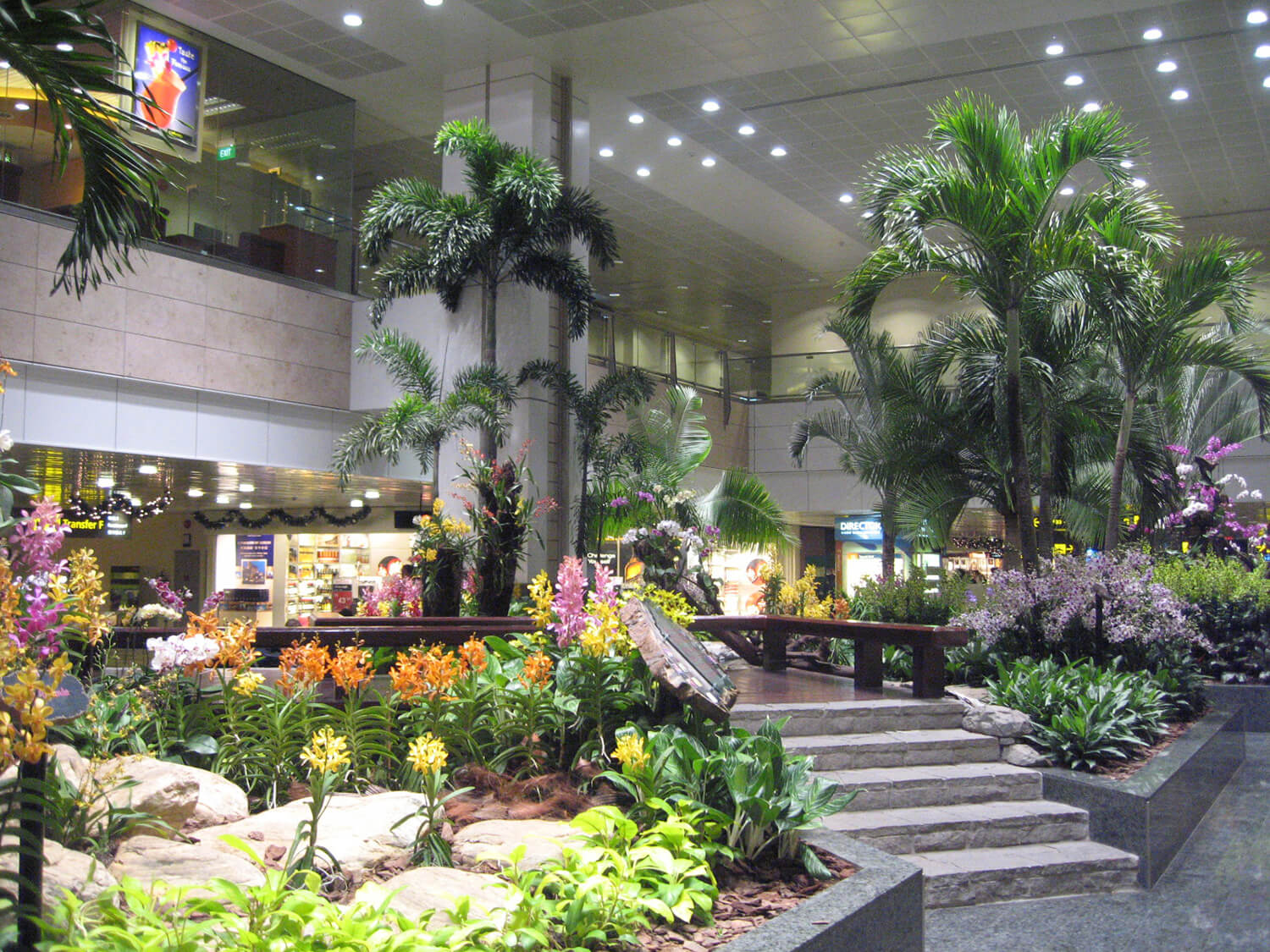
Conclusion
Airport shopping may not have the allure of ferreting out an exclusive boutique on some exotic side street in a foreign country. However, airport shops do serve a valuable purpose for dedicated watch buyers and impulse purchasers alike.
Their prices are generally about what you’d find off property. The warranties are the same. The often-extensive collections and availability are what sets many apart from their competition.
Before you leave home my advice when traveling and considering the purchase of a fine timepiece is to contact the authorized dealer or company-owned boutique at one or more airports in which you’ll have a lay- or stopover toward the end of your trip.
Check the price and availability of the piece in which you’re interested net of any duty free and VAT considerations. That’s the maximum price you’re willing to pay.
During your trip visit watch shops to your heart’s content. Compare pricing (including customs duty payable) and availability with what you found at the airport. Should you find the one while on your trip, grab it. If not, your fallback is the airport shop at the end of your trip.
Happy travels.
* This article was first published on May 11, 2018 at Shopping The Airports For A Luxury Watch: Customs, Duties, And Discounts Explained. You might find the comments under that article interesting.
You may also enjoy:
For Peace Of Mind, Consider A Watch Safe, And Discover Just How Safe A Safe Should Be
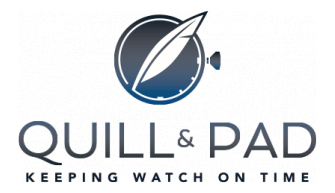


Leave a Reply
Want to join the discussion?Feel free to contribute!